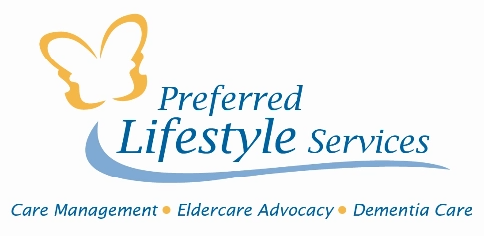Basic Communication Tips
and Coping Skills for Alzheimer's Families
Very few tasks are more stressful for a family member than being an Alzheimer’s caregiver. As you and your family find it more difficult to care for or communicate with your loved one, you may be more apt to be angry and frustrated. At the more advanced stages of the disease, you may be caring for someone you’ve known for fifty years, but who doesn’t recognize you in return. Your mother may look at you innocently, call you by the wrong name, and begin to tell you about her daughter whom she calls by the name of your grandmother. Your father, with whom you’ve had a lifelong close relationship and who adored his grandchildren, may ask you who you are and tell you he’s sorry he didn’t have children. It’s easy to understand why depression is so prevalent in Alzheimer’s families. It’s also easy to understand the anger you might feel when a loved one asks the same question repeatedly even though you answered it seven times in the last five minutes, walks away in response to a request to “sit down, Mom,” or even becomes aggressive and actually strikes you with no warning and for what appears to be no reason at all. There is a reason for all these actions and reactions.
We learn by association and memory. When your loved one’s memory fails, your loved one may no longer remember the names of beloved family members, pets, friends, his home address, telephone numbers, eating and personal grooming habits, and all the rest of a lifetime’s learning and memory storage. Your loved one doesn’t remember asking the same question repeatedly (or even once before), may not remember what “sit down, Mom” means, and may act aggressively out of fear, confusion, frustration that she is unable to communicate with you, or simply because that’s a symptom of Alzheimer’s disease. Because you can’t “see” the impaired cognitive function of your loved one’s brain, your loved one may look perfectly healthy. It’s difficult for caregivers with normal memory function to imagine living with no memories of as recent a time span as five minutes ago.
A major cause of tension is the lack of understanding of how to handle routine tasks such as dressing, eating, or family gatherings so that problems are minimized. Specific Alzheimer’s training and coping techniques are critical to controlling stress levels. Without specific training, usually available from your local Alzheimer’s organization or Area Agency for Aging, you may not understand that the reason your loved one continues to ask the same question over and over again is because they have no memory of having asked it the first time. You may not realize that angry, hostile behavior from your loved one when you insist on a bath may be because your loved one has forgotten what water is, and they may be frightened. Your loved one, who practiced modesty for eighty-five years, may be embarrassed to undress in front of you or anyone else.
As your loved one’s memory and skills decrease, it’s important that your knowledge of AD and your coping skills increase. The primary rule is: The more confused your loved one feels, the more difficulty you will have communicating and accomplishing even the simplest task. These twelve suggestions will help keep both you and your loved one on a more even emotional plane, and that will make routine tasks simpler.
- Remember Your Own Needs
- Accept the Disease
- Don’t Take Outbursts Personally
- Keep Your Requests Simple
- Beware of Your Physical Attitude
- Use Strategies When Eating Out
- Avoid Crowds
- Make Appointments for Midmorning
- Make Sure Professional Healthcare Workers Are Savvy about AD
- Build in Routines and Encourage Pleasurable Activities
- Use Day-Care Programs
- Be Sure to Take Appropriate Safety Measures
“We argued every day. Mom said something that was completely wrong or ridiculous and I always managed to correct her. The stress of communicating with her became almost unbearable. Her geriatric doctor made a wonderful suggestion. He said, ‘Go with the flow.’ He said if Mom says it’s time to eat, tell her she is right. Before she has a chance to think about it, I distract her and point out a family picture or a flower in the garden. She forgets about eating, and we move on to the next thing. One day she couldn’t stop thinking about her dog, Jack, who died ten years ago. I remembered what the doctor said, and instead of screaming at her that Jack’s dead and gone, I suggested we try to find him in the yard. By the time we got her coat on, she forgot why we were going outside. It doesn’t always work, but coping with her in this way makes it easier on both of us.""
Denise, New York

